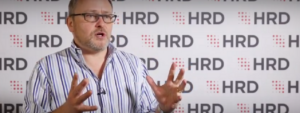Championing diversity in recruitment strategies
- 3 Min Read
Irrespective of their personal circumstances everyone has a niche, and those living with conditions such as autism, multiple sclerosis or combatting mental health issues are no exception. Just because an individual happens to be in a wheelchair, suffer from learning difficulties or face mental health challenges, it doesn’t mean that they should be bypassed in the hiring process. With the right support, they too can find a suitable career and progress, if they are just given a chance.
- Author: Teresa Scott
- Date published: Mar 27, 2018
- Categories

Making up a large proportion of the population, people with disabilities also have the potential to add considerable value to organisations by contributing additional skills and talents to the workforce, helping to propel businesses ahead of their industry counterparts.
Diversity in talent
A staggering 19% of the UK population and nearly 7 million people of working age in the UK are registered as disabled or as having a health condition, but only 7% of those with learning disabilities are currently in paid employment, despite 65% of people wanting to work and pursue a fulfilling career.
As these statistics show, there is still a vast employability gap for people with multiple health barriers, disabilities and mental health challenges.
Many HR departments have long implemented programmes to address gender disparities or to ensure ethnic minorities have equal opportunities in the workplace, but disability is a line of diversity that is rarely debated and acted upon.
All too often employers are wary about future repercussions associated with hiring individuals battling mental health conditions and disabilities but my own career experience, as the founder of Kennedy Scott, testifies that these concerns are ill-founded.
Change needs to happen
I have always been dedicated to employing based on skills, qualities and credentials for the job, irrespective of their personal circumstances. Many years ago, when recruiting for a Director level role, we employed a lady with multiple sclerosis. Her honesty on the matter was incredibly impressive and from the start we saw beyond her health challenge, recognising her talent and potential.
Heather is a brilliant employee and a committed, reliable, professional and a passionate Director. She always gave 110%, worked long hours and became an excellent manager. If anything, she also had a considerably better sickness record than most because she took such good care of herself.
The outcome of our own recruitment strategy reinforced our belief that if an employer turns their attention to the unique skills people have, rather than defining them by what they cannot do, they can recruit from the widest pool of talented individuals possible and successfully meet their organisations’ projected growth paths.
One idea we have pioneered at Kennedy Scott to help this process is the ‘Circle of support’©, a system that supports individuals with mental health challenges and physical disabilities into sustainable employment.
The aim behind this concept is to bring together key figures in an individual’s life to provide sustained support for that person’s employment journey. By encouraging a long-term support network that has real meaning and solid foundations, the employers we work with can recruit employees who will thrive and develop alongside the business, irrespective of their individual challenges
It has been wonderful to see the positive impact that our work has had on the attitudes of companies towards people with disabilities in the workplace. Nonetheless, society in general has a considerable way to go to establish a workforce culture that is completely inclusive.
Amongst the HR community in particular, we need to see a greater emphasis on broadening recruitment strategies to help organisations to recruit an effective and stronger workforce.
Not only will this assist business success and economic growth, but it will allow individuals with disabilities to overcome the barriers they have and to pursue a fulfilling and successful career.
By Teresa Scott OBE, the Founder of Kennedy Scott, a supplier of training and employability services







